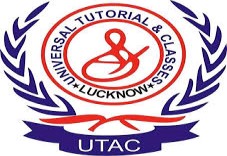Exam time is stressful for any student regardless of age or geographic location. For many students, their future may be riding on the results that they attain, perhaps it is for a place at university, to follow their chosen career or maybe something more personal. One of the best ways to manage this stress is to make sure that you are adequately prepared before you go into the examination hall.
Here at Harrow International School Bangkok, we do all we can to help our student prepare, not only for the exams but throughout their school career. We use modern teaching methods which are proven to help pupils retain more information while at the same time, making the lessons not only informative but interesting and fun. While there is only so much we can do to help students with their preparation, we can offer support and helpful advice during the revision period. Here are our eight tips to help you prepare for exams.
1. Time
Arguably, the most critical factor when it comes to preparing for exams is time. It means that you can prepare properly, without the added pressure of being short of time. Allocate a period each day to revise specific subjects, for example, at 10am you will revise science for an hour and so on. Allow yourself proper breaks, this doesn’t mean working for an hour and then taking two hours off, but having a 15 or 20-minute break after an hour can be beneficial.
“Cramming” does work for some people, but it is not recommended. We would suggest that any last-minute revision should be to refresh your knowledge rather than learn anything new.
2. Organisation
Being organised is vital, especially at a time when you are under more pressure than usual. Make sure you know exactly when your exams are and plan your later revision around this. Ensure that you have everything that you need beforehand from your teachers, such as practice exams papers or additional reading.
In addition, you should also make sure that your workspace is organised. Have a tidy desk, check your print has enough ink, and your room is sufficiently lit. Remove things that may distract you from studying such as your mobile phone or video games consoles – they’ll be plenty of time for these after the exams! Some people prefer complete silence to work, while others like background music, whatever you prefer, organise your workspace accordingly.
3. Use learning aids
Many students find visual aids such as flow-charts, graphs or diagrams beneficial. Something many students do before they start revising is to write down what they know about a topic. The topics that they are less confident about will be the ones that they start revising first. As time goes by, the list of things that you know will increase and will give a much-needed confidence boost from time-to-time. Once again, it comes down to what works best for the individual and if it is something that relates to your favourite football team or a teacher at school, so be it!
4. Practice exam technique
Exams are not something that you experience every day, so, therefore, you need to become accustomed to what is expected and what you need to do. Practice old exams papers; it not just about making sure you have the knowledge, it also includes how you answer the question and how it is presented. In some cases, students know the answer but lose marks by not answering the question in an “examination style”.
5. Get others involved
Revising for exams can be a lonely experience, and while this time alone is necessary, it is also beneficial to work with others. You can study with your friends and talk through your answers together. There will inevitably be things that you know, and your friends don’t and vice versa. You will be helping each other, and you may be able to present the information in a different way to a teacher, in a way that your friends understand. Also, practice explaining your answers and apply reasoning to why you came up with a particular response or solution. It is also great for exam technique.
6. Food and drink
With all the stress of the exams building, you must look after yourself properly. Make sure that you make time for breakfast, lunch and evening meal and sit and enjoy your food WITHOUT studying. Try to eat healthily as some studies suggest that eating fresh food, which is high in vitamins and minerals, can help your concentration. Also, try to snack on foods that are healthy and not packed with sugar.
Where possible, avoid energy drinks such as Red Bull or at the very least, limit your intake. No one would argue that they will give you an immediate lift, and this can serve a purpose, but once the sugar and caffeine “rush” wears off, it can have the opposite effect. Making sure you are adequately hydrated is essential, but try and stick to water rather than carbonated drinks.
7. Rest
When you are preparing for your exams, it is essential that you get enough rest and sleep. Aim for between seven and nine hours of “quality” sleep each night. Also, developing a routine may help. For example, going to bed at 11pm and waking at 7am. If you are someone who likes to take an afternoon nap, then it is fine to do this. However, sleeping although essential, it is not a substitute for study. If you do sleep during the day, this study time needs to happen during another part of the day.
8. The day of the exam
There is no getting away from the fact that on the day of the exam you WILL be nervous. Try to prepare yourself as best you can the day before the exam. Make sure you know exactly where the exam will take place and how long it will take you to get there. If you have problems with punctuality, make sure that you allow plenty of extra time. If necessary, practice your route the day before.
Once the exam starts, make sure you read the instructions carefully. It is all too easy to go straight to answering the questions, missing some critical information that could affect your result. If you are struggling with anxiety, try and practice breathing exercise to control your nerves. Finally, although it will be difficult, try to remain calm even if you feel like things aren’t going your way during the exam and good luck!
Leave your vote
This post was created with our nice and easy submission form. Create your post!










Like what you read? Give author a thumbs up?
Bookmark this article to read later, drop a remark in comment section and share with your friends..